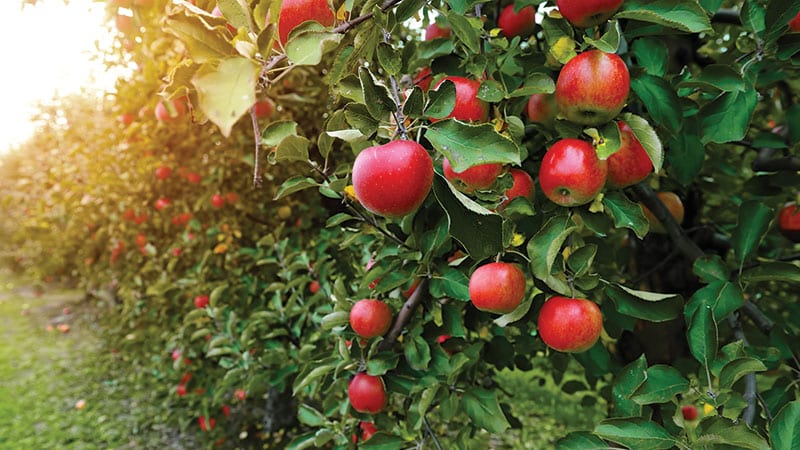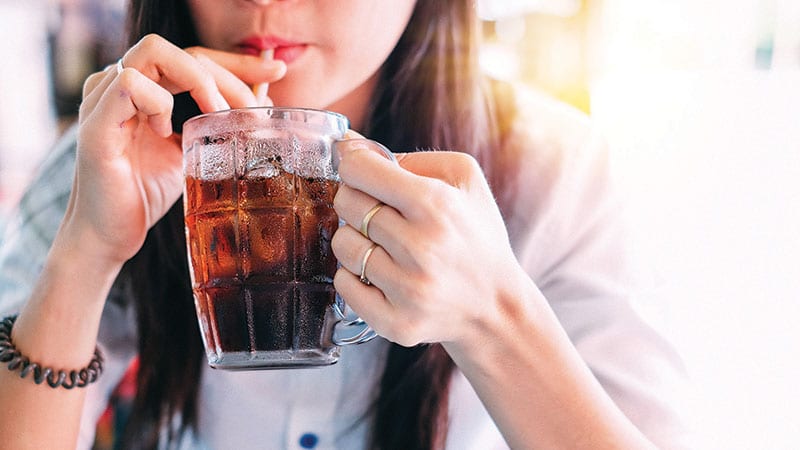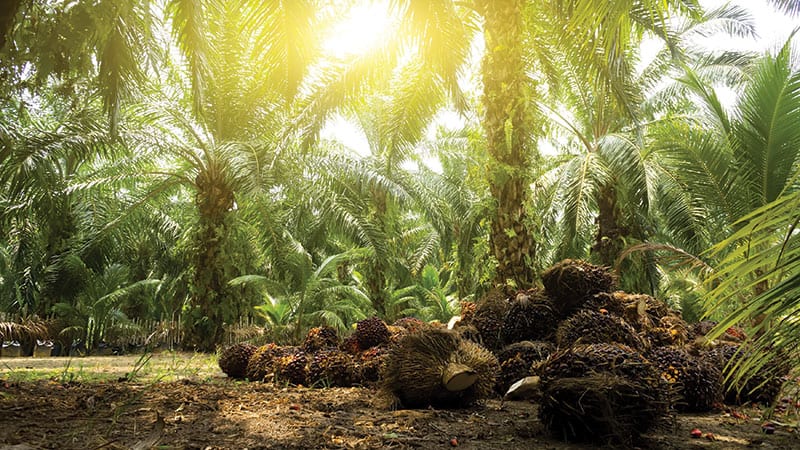News bites
This article was originally published in January 2021

More organic apples
Washington’s organic apple production continues to grow, and this year is no exception, said Tim Evans, manager of domestic and export sales with Chelan, Wash.-based grower-shipper Chelan Fresh. Evans noted that Washington expects an organic-apple volume of 21.4 million bushels, compared to just over 15 million last season, “which is big growth year over year, but we still see big growth coming.” John Long, manager/director of sales and operations for Raleigh, N.C.-based L&M Co.’s Washington business unit in Union Gap, said “Growers keep moving in that direction. You may see 15% of apples grown in Washington be organics.” (ThePacker.com)
Progress in perennial grains
A coalition of 50 farmers, scientists, educators, policy experts and food industry leaders across the U.S. has received $10 million to scale up production and commercialize Kernza, a perennial grain trademarked 10 years ago. The five-year initiative, called Kernza CAP, is led by The Land Institute and the University of Minnesota, and the coalition has received funding from the U.S. Department of Agriculture’s (USDA) National Institute of Food and Agriculture’s Agriculture and Food Research Initiative. In order to bring the perennial grain to a wider audience, the Kernza CAP plans to go beyond farming and research, and will begin to hone in on production and supply chains, marketing and commercialization, and education. (CivilEats.com)
Hops fuel craft beers
As recently as 10 years ago, about 80% of the American hop crop was so-called alpha hops—hops whose acids are used for bittering beer. By last year, however, about two-thirds of the crop was so-called aroma hops, prized for their distinct, alluring smells rather than simple bitterness. The market mix has nearly flipped, and hop acreage planted in the United States—95% of which is in the Pacific Northwest—has almost doubled since 2010: The rise of craft brewing, with its demand for very specific hops, has meant more stability for many American hop farmers. (Outside.com)
New American Viticultural Area
The Alcohol and Tobacco Tax and Trade Bureau (TTB) has published the final rule for the Candy Mountain American Viticultural Area (AVA), making it the 16th AVA in Washington. At 815 acres, Candy Mountain is the smallest AVA in Washington, sitting to the southeast of Red Mountain and within the Yakima Valley. It has a number of similarities to Red Mountain, including a warm climate and higher winds relative to the surrounding area. (Washington Wine Commission)
Cosmetics chemicals ban
California Gov. Gavin Newsom has signed the Toxic-Free Cosmetics Act. The state law is the first of its kind in the United States, providing consumer protection from 24 different toxic ingredients currently allowed in cosmetics and personal care products. Substances that will be banned include PFAS, mercury, formaldehyde, and many well-known chemicals that disrupt the endocrine systems—ingredients already prohibited from cosmetics and other personal care products sold in the European Union and some other countries. (EWG.org)

Youth soda consumption drops
Far fewer American kids are “heavy drinkers” of sugar-sweetened beverages today than they were at the turn of the century, according to a new study published in the Journal of the Academy of Nutrition and Dietetics. Researchers from the Harvard T. H. Chan School of Public Health analyzed the diets of 21,783 children ages 2 to 19, over more than a decade and found that their consumption of the high-calorie, mega-sweet sodas and juices on offer nearly everywhere had decreased by 70%. According to these findings, in 2003, a little over 10% of America’s children were considered “heavy drinkers” of sugar-sweetened beverages, or SSBs—a dubious categorization that meant they were sipping 500 or more calories’ worth of SSBs a day; but by 2016 that count had dropped to just 3.3%. (TheCounter.org)
Chicken price-fixing
Pilgrim’s Pride announced that it will pay more than $110.5 million in a plea agreement with the U.S. Department of Justice’s (DOJ) Antitrust Division. The plea is related to DOJ’s investigation into broiler chicken products, according to a news release. Earlier this year, senior executives from Colorado-based Pilgrim’s and Georgia-based Claxton Poultry Farms—major U.S. chicken producers—were indicted for conspiring to fix prices and rig bids on broiler chickens, which are sold to grocery stores and restaurants. (CNN.com)
Surplus food app
A food redistribution app, Denmark-based Too Good to Go, has debuted in New York City, allowing restaurants, cafes, and markets to redistribute to consumers surplus goods that would otherwise go to the landfill. The app acts as a marketplace for surplus food, where businesses can post their leftover food at a discount. Users then search among the local restaurants and grocery stores listed on the app, place an order, and retrieve their food from the merchant. (TheSpoon.tech)

Palm products barred
U.S. Customs and Border Protection has barred imports of palm oil from a large Malaysian producer because of evidence the oil is produced with forced labor. The order against FGV Holdings Berhad and its subsidiaries and joint ventures is the result of a year-long investigation that found evidence of numerous forced labor practices, including deception, restriction of movement, isolation, physical and sexual violence, intimidation and threats, retention of identity documents, withholding of wages and debt bondage, CBP said in a statement. The probe also raised concerns that forced child labor is potentially being used in FGV’s palm oil production process, the agency added. (Politico.com)
Bullitt Prize awarded
The Bullitt Foundation has awarded the 14th annual Bullitt Environmental Prize to Patience Malaba, an environmental justice and affordable housing advocate who immigrated to the United States from Zimbabwe. The prize recognizes young people who have overcome adversity and demonstrated the ability to become powerful environmental leaders. Malaba is the director of government relations and policy at the Housing Development Consortium of Seattle-King County, where she leads the organization’s policy and advocacy work: Her prior work includes leading Seattle for Everyone, a coalition advocating for the first comprehensive package of affordable housing policies in Seattle, known as the Housing Affordability and Livability Agenda (HALA). (Bullitt.org)
Paper bag ban
Single-use plastic and paper bags, as well as plastic foam containers, would be banned in New Jersey under legislation that passed the Democratic-led Legislature. While some states impose a fee on paper bags, New Jersey lawmakers say the state would be the first to ban paper bags. The prohibition would go into effect in 2022 under the bill, which goes next to Democratic Gov. Phil Murphy. (Associated Press)
Organic grains grant
A Cornell scientist is leading a multi-institution team that’s helping turn diverse and ancient grains into staple foods throughout the Northeast and Midwest, thanks to a three-year, $2 million grant from USDA. The project focuses on developing infrastructure to establish an organic industry for grains such as bread wheat, naked barley, hulless oats, rye, emmer, spelt and einkorn. In addition, the project aims to benefit organic vegetable growers by providing them with diverse crop options that they can rotate with high-value crops, such as food grains. (Cornell.edu)
Canning jar shortage
The increase in the number of people cooking and trying recipes during the pandemic led to a surge in canning—because experienced canners are doing it more and novices want to give it a try. And that surge has led to a shortage in Mason jars and lids. Most of the demand is for the two-part lids necessary for canning, because they are single-use, whereas the glass jars can be used over and over. (CNN.com)
Candy checkstand ban
Berkeley’s City Council has passed an ordinance, believed to be the first of its kind in the U.S., that will remove unhealthy food from grocery store checkout aisles. The new policy will require retailers larger than 2,500 square feet to stock healthy food at the register and in areas where customers wait in line, instead of items like chips, soda and candy. It forbids food items with 5 grams of added sugars and 200 milligrams of sodium, chewing gum and mints with added sugars, and beverages with added sugars or artificial sweeteners. (Berkeleyside.org)
Reduced egg inspections
The Trump administration said in September it would stop requiring U.S. plants that produce egg products to have full-time government inspectors, in the first update of inspection methods in 50 years. Under a new rule that took effect immediately, the U.S. Department of Agriculture was to allow companies like Cargill Inc and Sonstegard Foods to use different food-safety systems and procedures designed for their factories and equipment. The change marked the Trump administration’s latest move to ease government regulations over the nation’s food system; some inspectors and public-interest groups have warned food safety may suffer as a result. (Reuters.com)
